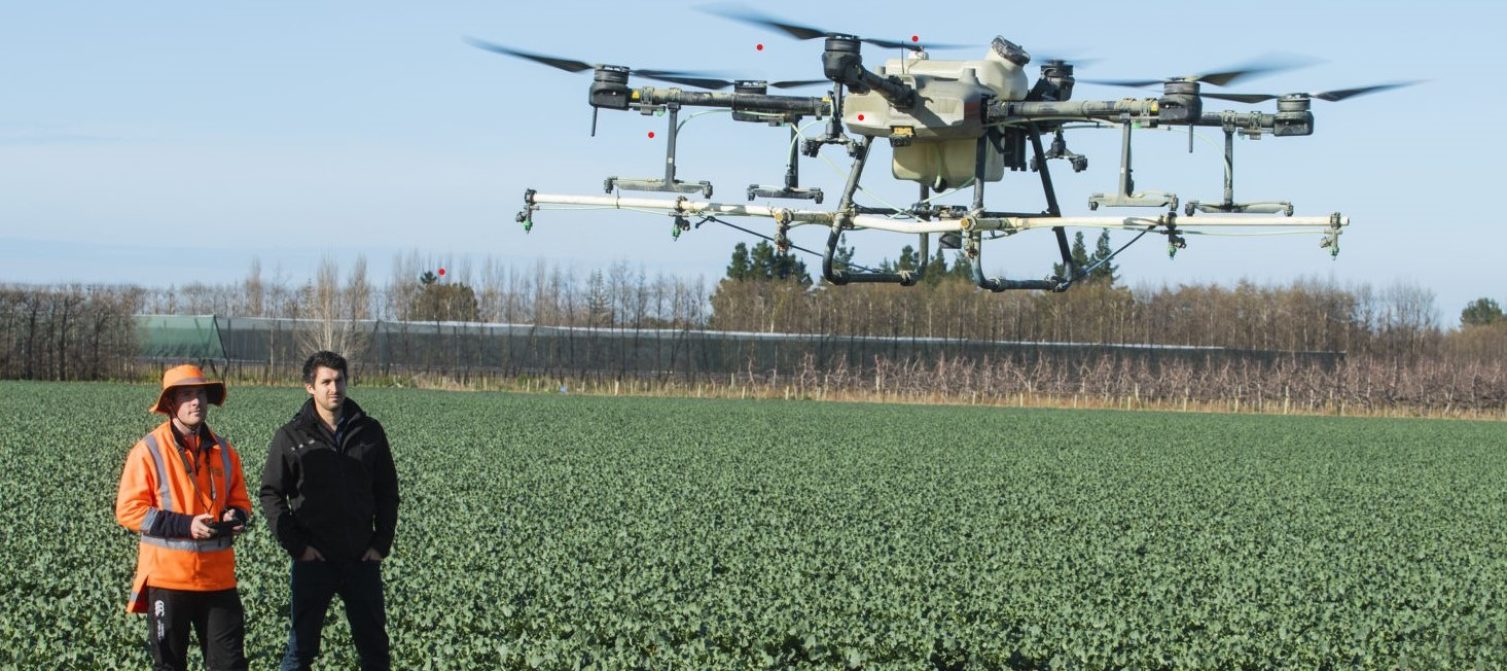A recent trial using drones for spraying at our Makauri Farm in Gisborne produced positive results.
LeaderBrand’s research agronomist Chris Lambert said the trial took place over three months during winter, an ideal time as the ground was too wet to operate a tractor on.
“We wanted to manage our weeds in winter. Rather than spray over a wide area, which is a big waste of chemicals, the drone was able to target weed clumps.”
He said the advantage of drones is that they don’t compact soil like tractors do and they’re also more agile than helicopters.
“Drones are also quieter for the neighbours, they’re able to go into areas where helicopters can’t, and the spray coverage is better because we’re flying them at lower altitudes,” said Lambert.
For the trial, we used a larger model drone that has a 30-litre capacity and is around 80kg when loaded with spray. The drone is powered by batteries, which give it a flight of approximately 10 minutes.
“The bonus is that the drone is highly automated, which means you can set a boundary and it will fly itself with minimal input and can even return to the point where the tank last ran out after a refill,” he said.
LeaderBrand partnered with agricultural drone company AgDrone over the past year to test and commercialise agricultural drones in vegetable production.
Lambert said the partnership with AgDrone was invaluable and they were able to trial different nozzles and spray application rates.
“We’re working with pilots that are highly qualified. They’re operating within the (Civil) aviation rules and have back-up operators working in tandem to ensure they keep an eye out for any potential hazards.”
Smaller drones are also being used for soil management, mapping capabilities, studying crop performance, and pinpointing certain areas for spot spraying.
Lambert said the trial was a very good experience and within the next five years he would love to see LeaderBrand using a fleet of drones. “Definitely the question now is what route to commercialisation.”
If farmers or growers were interested in using drones on farm, Lambert urged them to “talk with some experts.”
“There is a lot of compliance involved with drones and they have all the knowledge.”
EYE IN THE SKY
Federated Farmers senior policy advisor Jacob Haronga said drones are being used for spot spraying as they are proving useful as a means of more precisely controlling plant weeds or nutrients around the farm.
“Drone use on farms is still in its infancy, but reports suggest uptake is slowly growing as more farmers give them a go, the tech becomes more affordable and available, and the applications become more well-known on the back of pilots and trials that occur on farms in various parts of New Zealand.”
In May 2022, a field day was held in Otago which attracted farmers from both Otago and Southland. They were keen to learn more about using drones not only to spray but also sow seeds and fly into hard-to-reach ravines.
In terms of further applications, drones could be used to muster livestock and scan planted areas to assist with carbon accounting and environmental compliance.
Original story source: https://www.fedsnews.co.nz/gisborne-drone-spraying-trial-deemed-a-success/

